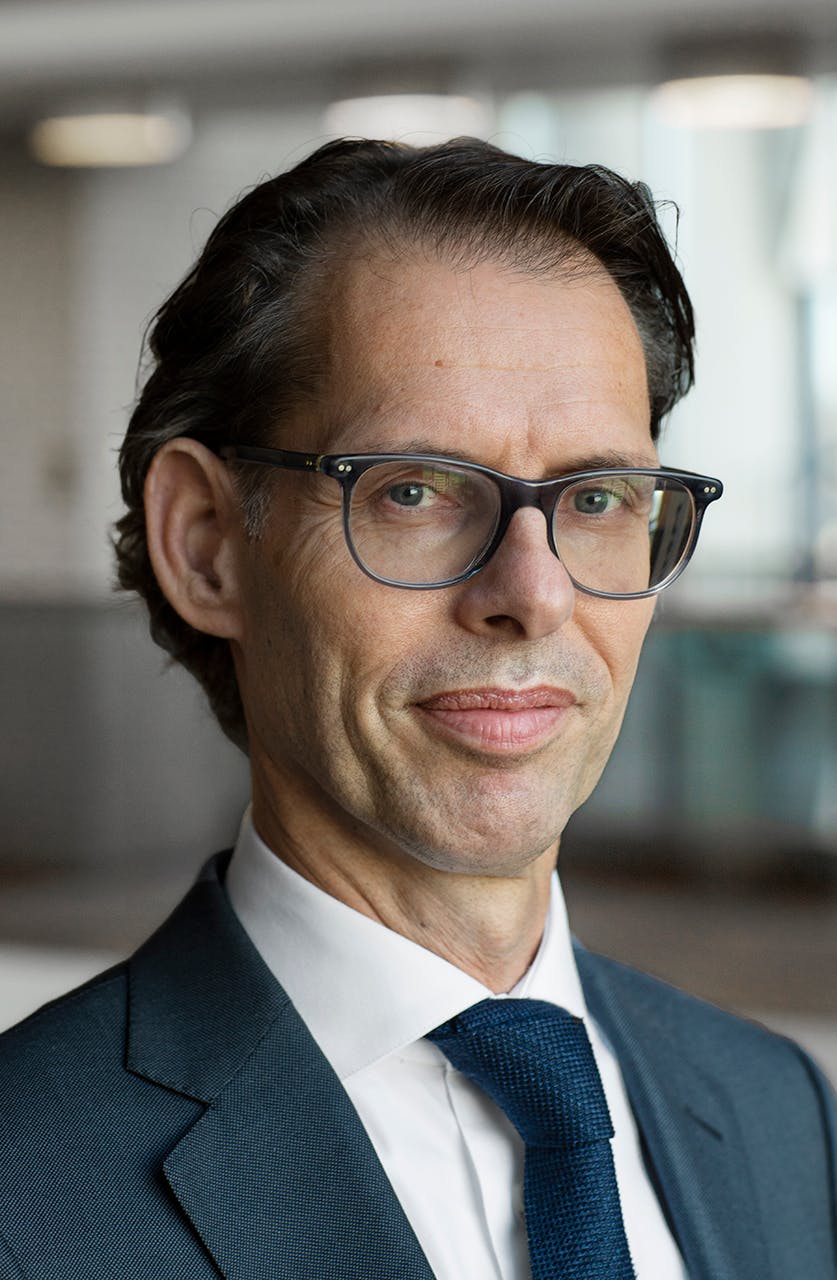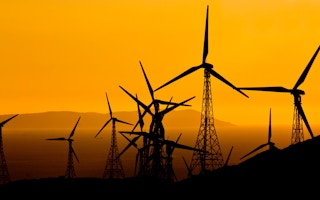As many companies scrambled to respond to disruptions arising from the coronavirus pandemic earlier this year, nutrition, health and sustainable living company Royal DSM signed its largest renewable energy agreements covering about a quarter of its total annual electricity consumption.
The two power purchase agreements, inked in April, were with major wind energy producer EDPR in Europe, and with global solar firm Origis Energy in the United States. They put DSM on track to source 75 per cent of its energy from renewable sources by 2030, an increase from the 50 per cent it achieved last year.
Besides helping to improve DSM’s own carbon footprint, the long-term agreements enable EDPR and Origis to secure financing for the construction of their new renewable energy parks.

Image: DSM
“Our first priority is always the health and safety of our people, something which has been especially critical this year. But our long-term approach to building back better is to accelerate our own sustainability, as well as enable others in the value chain and to advocate for stronger green initiatives because the problems faced by the world are too complex to be solved alone,” said Dimitri de Vreeze, co-chief executive officer and chief operating officer of DSM.
Calls began months ago for the world to build back better from the worst crisis of a generation. Environmentalists and sustainability advocates urged countries to take advantage of drops in energy demand, and changes in work and consumption patterns, to recalibrate for a low-carbon future.
Some have stepped up to the plate, but a recent analysis shows that few countries are living up to their “green recovery” pledges.
For DSM, a green recovery from the pandemic means systemic changes that will move the world towards net zero carbon and a more circular economy where resources are used in an endless loop, instead of ending up in landfills or being incinerated as waste.
Since 2015, the Dutch-headquartered multinational has set an internal carbon price of €50 per tonne of carbon dioxide-equivalent. This helps to incorporating the cost of emissions into decisions that require significant capital expenditure.
DSM’s diverse portfolio of products includes plant-based protein, feed additives to reduce methane belched by cows, an algae-based oil that replaces fish oil to feed farmed fish such as salmon, and coatings for solar modules that enable more power to be generated.
“
Faced with disruption from Covid-19, a vital part of the green recovery for businesses must be the integration of sustainable production.
Dimitri de Vreeze, co-chief executive officer, chief operating officer and managing board member, DSM
Boosting immunity and resilience
Much of its operations, such as those related to food and medical supplies, were deemed essential by governments, so production sites were not impacted by widespread lockdowns to contain the virus outbreak. Nonetheless, de Vreeze said it is looking at ways to enhance supply chain resilience. About 96 per cent of Asia Pacific enterprises are small and medium firms, and DSM is exploring ways to collaborate with partners to enhance their sustainability and innovation, he said.
The company has also responded to the trend of greater health consciousness. It distributed millions of immunity-boosting products containing essential vitamins and minerals to all 23,000 of its employees and their families in recent months. It also conducted webinars to enhance their understanding of healthier lifestyle choices that can optimise their immunity.
And in Singapore, DSM has partnered with innovation catalyst Padang & Co to establish a collaborative workspace called the Bright Science & Technology Innovation Hub. The hub aims to connect tech start-ups and other partners that seek to address Asia-Pacific’s nutritional, health and sustainability challenges, and provide them with access to DSM’s network, technical expertise and laboratories.
‘Now is the time for change’
DSM has also joined many of the most prominent global green recovery efforts to “ensure this moment for change is not lost”, said de Vreeze, who is a member of DSM’s managing board. They include the European Union (EU) Green Recovery Alliance, the World Economic Forum CEO Action Group, and the United Nations-backed “Uniting business and governments to recover better” campaign.
Asked what lessons the EU’s €750 billion coronavirus recovery fund—which will devote a significant portion to green projects such as low-carbon steel production—offers to other regions, de Vreeze noted that some countries in the Asia Pacific are also working towards a similar goal.
The South Korean government has included a Green New Deal as part of its US$110 billion stimulus package, he noted. Japan’s government has announced an online platform to facilitate the exchange of views and insights on how best to use carbon-cutting measures to reboot the economy sustainably.
“Elsewhere in the region, such as in Malaysia and Myanmar, we see a renewed interest in solar energy too,” he said.
“However, Asia Pacific still relies heavily on non-renewable energy and fossil fuels are still the dominant source of energy for Southeast Asia in particular. Worryingly, not only will coal continue to be the primary fuel source for power generation in the region, it is expected to grow in use over the next few years.”
Companies must act now by aligning with the UN Sustainable Development Goals and reporting environmental, social and governance (ESG) data, de Vreeze said. Investors can also help to change industry behaviour.
“Faced with disruption from Covid-19, a vital part of the green recovery for businesses must be the integration of sustainable production. A large and growing number of manufacturers are rethinking their inputs and turning to materials which can minimise the environmental impact without compromising performance,” said de Vreeze.
To promote transparency across the value chain—which is essential to ensure sustainable production—DSM has introduced Imp’Act Cards for an increasing number of ingredients used in personal care products. The cards quantify the environmental impact, traceability, social impact and identity of each product according to key standards, and are available for ingredients such as D-Panthenol, a moisturiser for skin and hair, and Vitamin E, an anti-oxidant.
By prioritising a faster and fairer transition from a grey to a green economy, and by aligning policies and recovery plans with the latest climate science, it is possible to achieve a business environment that encourages a resilient, zero carbon economy, said de Vreeze.
“The Covid-19 pandemic has highlighted humanity’s interdependence with the natural environment, and how our current system makes us all vulnerable to challenges like climate change and resource scarcity,” he said.
“The time for change is now. A pivot towards a green recovery and circular economy must be high on the agenda of business leaders and governments alike.”













